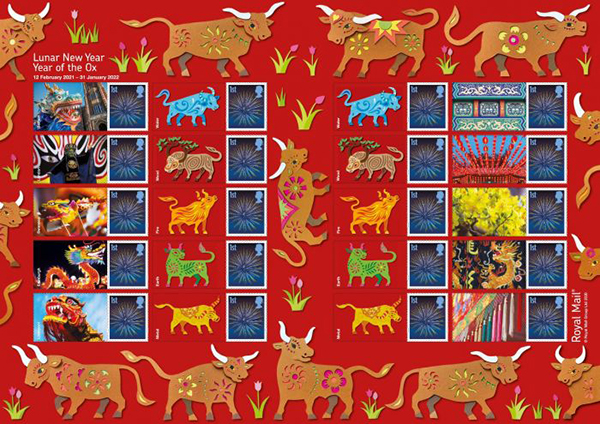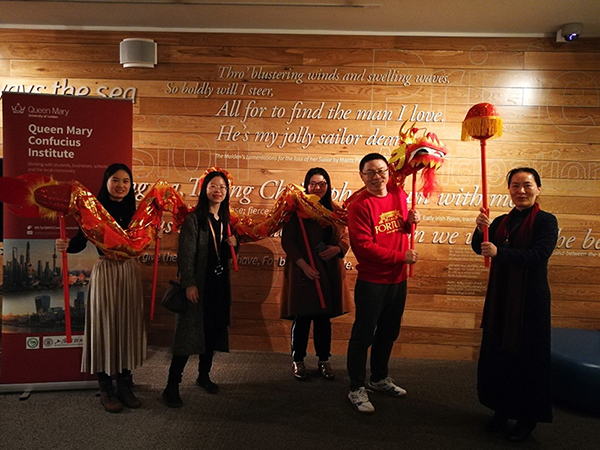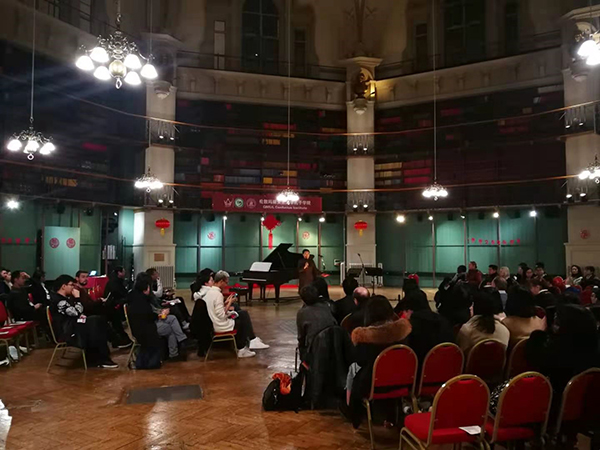Chinese New Year of Ox 2021
The Chinese New Year of the Ox is fast approaching, bringing more hopes of the spring to us. Professor Zhi Geng from Queen Mary's Confucius Institute has gives us an overview of what the Year of the Ox means and some tips to help us celebrate.
Chinese New Year 2021 is this Friday, 12 February in the Western calendar or, in the Chinese Lunar Calendar, it is the first day of the first lunar month – the new moon. Because the lunar cycle is a bit shorter than the solar cycle, the Chinese New Year is always a bit “later”. The date changes every year but it is normally between 20 January and 20 February.
China has been using the lunar calendar system since the Xià Dynasty, 4,000 years ago. That’s why this calendar is also called 阴历 (Yīn lì) or 夏历 (Xià lì) in China.
The Spring Festival and the phases of the solar cycle
The Chinese New Year is also known as the Spring Festival (春节, Chūn jié). It marks the end of the coldest days of the year and is celebrated with lavish feasts and plans for the new spring.
It is widely believed that Chūn jié is the start of the new Zodiac year or the spring in China. However, it is not. To be precise, the day of 立春 (Lì chūn, the beginning of spring), is the first solar phase in the 24 phases of the solar-cycle or agricultural calendar year (农历, Nóng lì) and it officially marks the start of a new year.
The date of Lì chūn is very close to the Chūn jié – within a week. For example, this year, Lì chūn is on 3 February, and the exact moment is 22:58 and 39 sec according to the Chinese Meteorological Administration. This means you can celebrate the new year of the Ox from the evening of 3 February.
What is the animal zodiac sign this year?
The animal for 2021 is the Ox (牛, niú).
The Chinese zodiac is made up of 12 animals, which change each year on a rotating cycle.
Many Chinese fortune-tellers believe that your birth year and the animal influences your personality. People born in year of Ox are diligent and earnest, and also very talented and successful.
Sayings such as 你很牛 (Nǐhěn niú, you very like ox), is the Chinese slang for “you are awesome”. Everyone in China wants to be “a big ox” 牛人 (niú rén, literally, cow boy).

(Source: Royal Mail website)
Chinese Zodiac symbols
- Rat: 2020, 2008, 1996, 1984, 1972, 1960
- Ox: 2009, 1997, 1985, 1973, 1961
- Tiger: 2010, 1998, 1986, 1974, 1962
- Rabbit: 2011, 1999, 1987, 1975, 1963
- Dragon: 2012, 2000, 1988, 1976, 1964
- Snake: 2013, 2001, 1989, 1977, 1965
- Horse: 2014, 2002, 1990, 1978, 1966
- Goat: 2015, 2003, 1991, 1979, 1967
- Monkey: 2016, 2004, 1992, 1980, 1968
- Rooster: 2017, 2005, 1993, 1981, 1969
- Dog: 2018, 2006, 1994, 1982, 1970, 1958
- Pig: 2019, 2007, 1995, 1983, 1971, 1959
How is Chinese New Year celebrated?
Chinese New Year is a period of red decorations, family banquets, and spectacular fireworks.
It is the biggest festival in China and the longest national holiday in China – seven days long! It is also a public holiday in many Asian countries like Korea, Japan, Vietnam, Singapore, Malaysia. Over two billion people around the world celebrate this day.
Most large cities in the UK have their own Chinese New Year events planned, with parades, dragon and lion dancing, excellent food, and musical shows. Last year, Queen Mary’s Confucius Institute hosted a series of cultural activities to celebrate Chinese New Year in London.

Chinese New Year Workshops, 25 Jan 2020, at the National Maritime Museum

Chinese New Year Concert, 22 Jan 2020, at The Octagon, Mile End campus
You can still celebrate lockdown Chinese New Year 2021!
- Make delicious Chinese food, such as dumplings - remember to wrap a lucky penny in one dumpling!
- Learn Chinese and say “新年快乐, 恭喜发财” (Xīn nián kuài lè, gong xǐfā cái / happy new year and wish you prosperity) to your friends.
- Cut out a paper ox and decorate your room.
- Take a virtual tour of the Forbidden City, the old Palace in Beijing.
- Practice ancient medical Chinese Qi Gong exercises at home.
- Join a Chinese poem reading/talent show competition and win prizes from both the project organizer and the Queen Mary Confucius Institute.